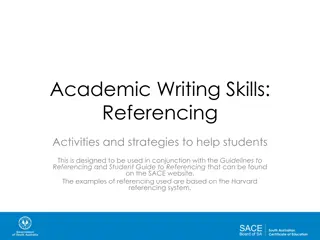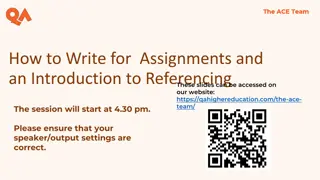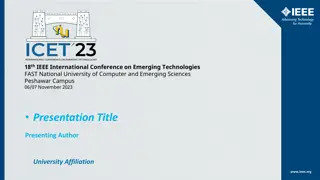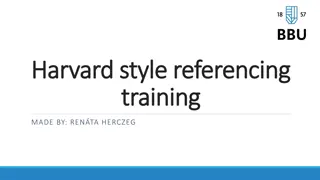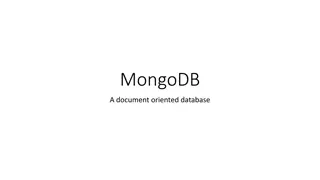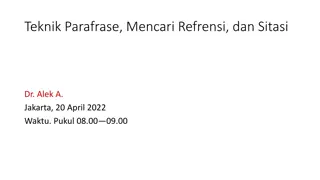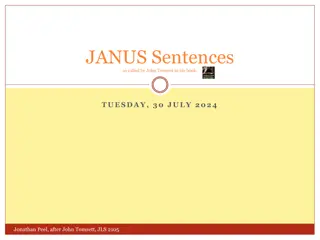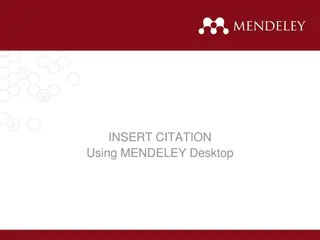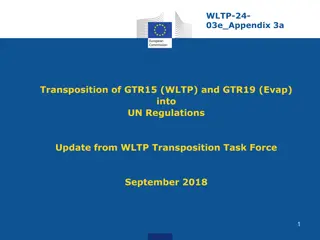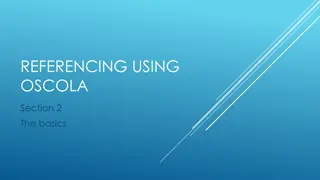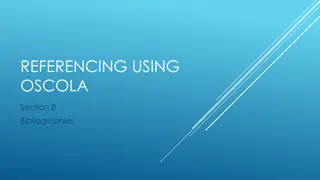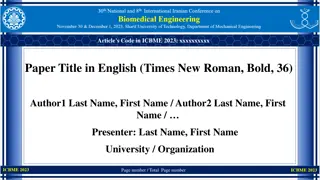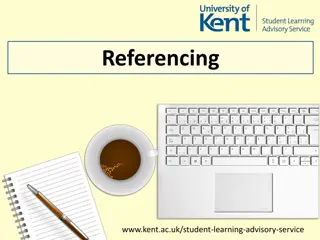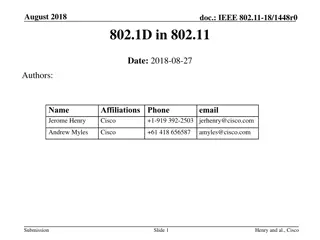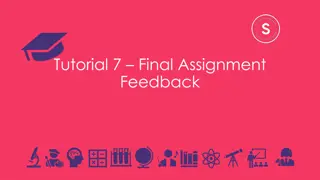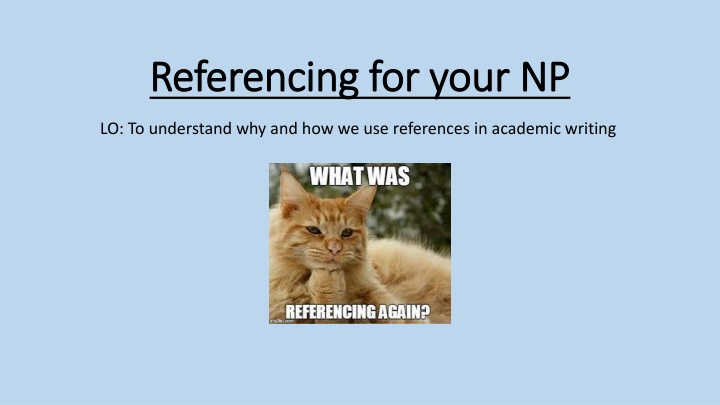
Academic Referencing in Writing
Learn the importance of referencing in academic writing to avoid plagiarism. Discover how to include references in your work, useful verbs for citing sources, what types of references to use, and key formatting tips. Ensure your academic work is credible and well-supported with appropriate references.
Uploaded on | 1 Views
Download Presentation

Please find below an Image/Link to download the presentation.
The content on the website is provided AS IS for your information and personal use only. It may not be sold, licensed, or shared on other websites without obtaining consent from the author. If you encounter any issues during the download, it is possible that the publisher has removed the file from their server.
You are allowed to download the files provided on this website for personal or commercial use, subject to the condition that they are used lawfully. All files are the property of their respective owners.
The content on the website is provided AS IS for your information and personal use only. It may not be sold, licensed, or shared on other websites without obtaining consent from the author.
E N D
Presentation Transcript
Referencing for your NP Referencing for your NP LO: To understand why and how we use references in academic writing
Q. Why do I have to do this? A. So that you are not plagiarising someone else s ideas or work! References are required when you: Quote - use someone s exact words Summarise - sum up someone else's arguments or ideas Paraphrase - put another author's material into your own words Copy - use illustrations such as: diagrams, tables, sheet music, photos Referencing is your pal! It shows that you are able to research and use other ideas to support your work.
How to include references in your writing 1. Slaton (1998) suggested that . 2. Hay (2017) found 3. A recent study described cats needing more attention than dogs (Tupper & Ware 2004) 4. The website Cats at Home (2019) suggests that cats prefer treats after a nap At the end of your work you then list in alphabetical order the full reference. This is a reference list. Sometimes you are asked to include a bibliography too- this is every resource that you have read around the subject but not necessarily referenced directly in your writing.
Some useful verbs 1.Analyses 2.Examines 3.Illustrates 4.Summarises 5.Discusses 6.Points out 7.Indicates
Q: What can I use a reference? A: Any reliable source Have you seen a play that has informed your thinking? Read a newspaper article? Watched a film? Listened to a TED talk? If it has developed your thinking then use it!
An example We use the Harvard format. Website Book As you can see, the layout is slightly different for different sources. It is always best to check This covers everything! https://library.aru.ac.u k/referencing/files/Har vard_referencing_201 920.pdf
Some other important information Make sure your font is Arial 12 Use double line spacing It is helpful to include a contents page Number your pages Use appendices for things like lesson plans, feedback (blank out any GDPR data) Generally, you are allowed 10% either way of your word count Word counts do not usually include titles, contents, references, appendices
Referencing software makes referencing quick and easy! Especially if you are using lots of online references. Many books are available to help you with academic writing. They are extremely helpful to refer to when planning your work and to refer to when you need to check the correct way to do something. - Zotero - Mandelay - Refworks - Citationsy Free download options are available

